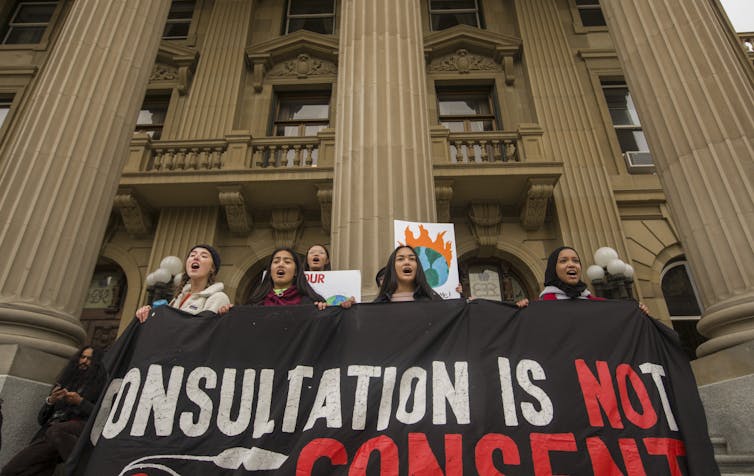 |
| These three women have the power to make it happen: EU Commission President Ursula von der Leyen, Europe’s top banker Christine Lagarde and German Chancellor Angela Merkel. (image via Avaaz) |
In days, Europe could put forward a bold, green Corona recovery plan that would be a beacon of hope for the rest of the world -- but big polluters and coal-loving governments are trying to derail it!
To fight back, Avaaz is joining a massive group of influential politicians, scientists, academics, business leaders and civil society, to back an ambitious green recovery for Europe.
And these three women have the power to make it happen: EU Commission President Ursula von der Leyen, Europe’s top banker Christine Lagarde and German Chancellor Angela Merkel.
Let’s embolden them with 1 million signatures from all corners of the world, making sure they stay strong, face down the lobbyists and lead us towards the green future we need.
Join now with one click -- in days, key parliamentarians will deliver our voices straight to Europe’s leaders and the media!
| ADD MY NAME |
|
To Commission President von der Leyen, Chancellor Merkel, Christine Lagarde and all EU leaders:
You’ve got the power to lead Europe and the world out of the dark days of this pandemic towards a brighter, greener future.
You can make the Green Deal our Recovery Deal by investing hundreds of billions a year to create green jobs and make our economies clean and fair. We count on you to put a climate bank and a climate budget at its heart, and ensure that all money is spent in line with the Paris agreement. It is time to move away from dirty fossil fuels, tax large corporate profits, and unleash the clean energy revolution we so desperately need.
Together, we are strong enough to fight back and recover from this virus. We are generous enough to ensure no one is left behind. And we are wise enough to ensure this recovery does not lay the foundations for even worse climate crises in the future.
ADD MY NAME
With hope for the future,
Loup Dargent
Loup Dargent
On behalf of Luis, Alice, Pascal, Patricia, Bert, and the whole Avaaz team
MORE INFORMATION:
- Polluter bailouts and lobbying during Covid-19 pandemic (The Guardian)
- Coronavirus recovery plan 'must tackle climate change' (BBC News)
- Why climate change is a pandemic in slow motion (and what that can teach us) (The Correspondent)
- Creating Jobs Saving Lives EU
- Time to invest in a healthy future: Time for a green & just recovery (Transport & Environment)







































